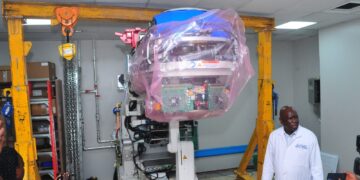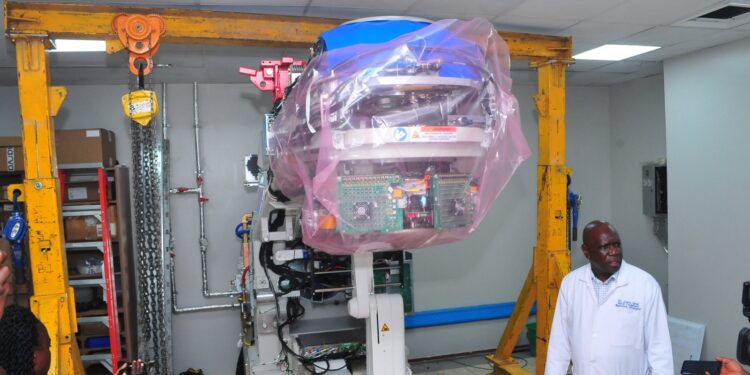The Uganda Cancer Institute-UCI has acquired five new cancer treatment machines, a measure expected to tackle patient queues at the facility.
The newly acquired equipment includes four radiotherapy machines and one Single Photon Emission Computed Tomography (SPECT) scan with a CT scan.
The SPECT scan is a type of nuclear medicine test that utilizes a radiotracer injected through the vein to provide diagnostic information.
Each machine is capable of treating a patient within 15 to 18 minutes, allowing for a greater number of patients to receive treatment daily compared to the previous 12-hour timeframe required for a single patient.
The investment in the machines and infrastructure was fully funded by the Government of Uganda, with over 39 billion Shillings allocated for the machines and an additional 30 billion Shillings for building and bunker setup.
Dr Jackson Orem, the Executive Director of the Uganda Cancer Institute, emphasized that the acquisition of the machines positions Uganda as a centre of excellence for cancer management and treatment in East and sub-Saharan Africa. He adds that this advancement will reduce the need for Ugandans to travel abroad for cancer treatment.
Dr Nixon Niyonzima, the head of research and training at the Uganda Cancer Institute, acknowledged the current burden of increasing patient numbers, highlighting that the institute currently has only 130 beds. However, the government is investing in infrastructure, and within the next 18 months, the institute will be expanded into a 365-bed hospital with additional structures to enhance patient well-being.
Dr Niyonzima further revealed plans to operationalize the Gulu cancer treatment centre in July of this year, along with other centres in Mbale, Mbarara, and Arua. These initiatives aim to ensure that 85 per cent of cancer patients in the country have access to quality cancer care.
Dr Israel Luutu, the head of clinical services emphasized that radiotherapy treatment does not replace chemotherapy at Mulago but can be used concurrently to achieve successful outcomes comparable to surgery.
Furthermore, there have been advancements in chemotherapy treatment, such as targeted chemotherapy that specifically targets cancer cells, thereby reducing side effects and promoting faster patient recovery.
The acquisition of these new cancer treatment machines marks a significant milestone in Uganda’s efforts to combat the growing burden of cancer and improve the quality of care provided to patients.
URN









